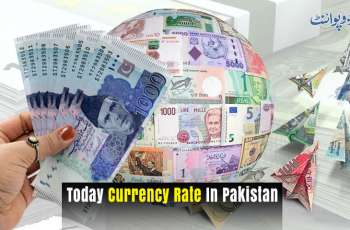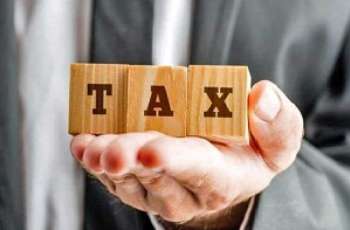HERAKLION (Pakistan Point News / Sputnik - 01st January, 2023) Residents of the Greek island of Crete are facing a skyrocketing cost of living due to rising inflation in the wake of COVID-19 and sanctions on Russia over Ukraine, according to locals surveyed by Sputnik.
Annual inflation in the EU has been growing since 2021 and reached a record of 10.6% in October. The monetary authority of the eurozone, Eurosystem, predicts that inflation will average 8.4% in 2022 and go down to 6.3% in 2023.
Explanations for the current predicament include supply chain disruptions and monetary and fiscal policies adopted during the COVID-19 pandemic as well as a comprehensive sanctions campaign against Russia over the special military operation in Ukraine, which drove up energy and food prices.
"The cost of living in the EU is breaking one record after the other on a daily basis. I am 67-year-old and I can't remember a period in the past when daily life was expensive," Cretan pensioner Manolis said, adding that inflation is having a dramatic effect on his day-to-day life as "the cost of living is three times more expensive than what it was a year ago."
The senior citizen went on to stress the importance of Russia as a major economic partner for many European countries, including Greece, which exported its fruit to the country and also welcomed hundreds of thousands of Russian tourists every summer.
"Now all of these are gone because of the sanctions; I am sure many people will unfortunately lose their jobs because of this decision of the EU," he concluded.
In the same vein, Nikos, a 32-year-old lawyer, has noticed a major cost-of-living hike during the last few months as well as many shop closures caused by adverse economic situation.
"It is the first year that I remember that so many shops are closing due to the high costs and high inflation and the resulting low income and extra financial pressure," Nikos stated.
Meanwhile, Stelios, a 47-year-old farmer, complained that in his field the situation is worsening every day, as he now has to pay more for fertilizers for his olive trees. while also dealing with market shortages.
"Also, I have livestock a and it is very hard for me to buy the food necessary for the sheep and goats, and sometimes I don't have food to give them, so I leave them in the fields to eat," the farmer continued, calling for more support from the Greek government and the EU.
When asked if she was satisfied with how the EU is responding to the energy and financial crisis, Evangelia, a 37-year-old car salon owner, suggested there was more that Brussels could do for small and medium-size enterprises, noting, however, that the block is shooting itself in the foot with its decisions.
"The EU is making decisions in the wrong direction in my opinion when it comes to protecting us from the energy crisis, since if it weren't for the sanctions against Russia, there would have been no crisis," she said, adding that "Russia was our main supplier, now this is the past; also, the sanctions we set on the Russian economy are also hurting our economy to a great extent, and I don't see an easy way out of it."
At the same time, 29-year-old accountant Michalis thinks that the bloc is taking steps in the right direction with regard to becoming energy independent, citing initiatives like REpowerEU as well as the recent gas price correction mechanism and the common energy purchase platform.


